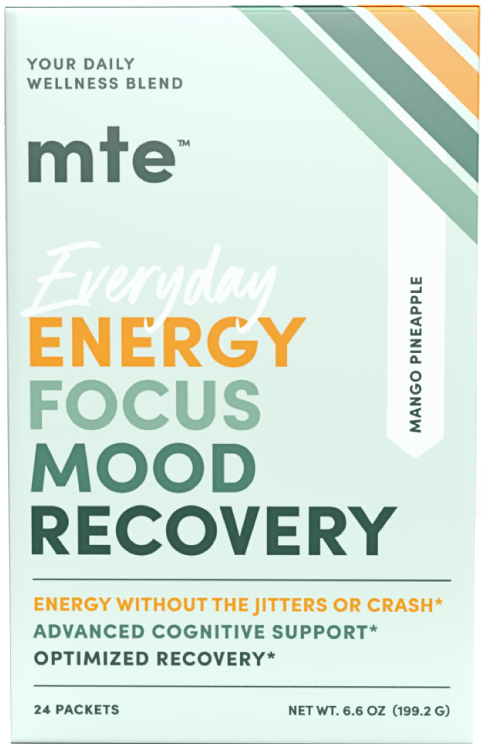
Can I Put it Off? The Psychology of Waiting Until the Last Minute
Ah, procrastination. We’ve all decided not to write that brief until 15 minutes before the morning meeting, or put off that last chapter of a thesis until 2 days before the defense. And we all know it never ends up cute: you’re nervous about putting it off, and then you’re stressed about the time you now don’t have to finish it. You’re scrambling to get it done in a way that looks like you’ve been working on it the whole time even though it’s really a slap-dash situation. You’re amped about getting it in before that deadline, and you’re absolutely crashed after. But somehow that doesn’t seem to stop us from putting off the next thing we really don’t want to do…
So, what’s with the vicious cycle? Is it poor time-management skills? Are we lazy? Is there a reason?
Understanding the Mechanisms of Procrastination
Procrastination is defined as avoiding a task on purpose even though it’s often against your best judgement. It’s derived from a Latin verb that means “to put off until tomorrow”, and a Greek word that means “against better judgment”. If you think about it; it’s entirely irrational, because we’re acutely aware that putting off the task isn’t a good idea. So we feel bad about putting it off. Which makes us want to put it off more. And then it’s Friday afternoon at 4:15 pm and we’re screwed.
It’s easy to see procrastination as a synonym for laziness, but it’s also misguided. There’s more that’s at play here, and it’s actually about executive functions, mood and emotional regulation. There’s a task you don’t want to do, either because it’s unpleasant or actually doing it makes you feel some type of way about yourself. So you put it off, which then compounds those bad expectations/thoughts. You then feel bad about putting it off, which makes you delay the task even more in order to not think about the fact you’re still putting it off.
It’s basically a really messed up hamster wheel.
There are a few psychological mechanisms that play an unfortunately-supportive role in spurring and sustaining this negative cycle:
- Prioritizing the management of negative mood in the short-term over long-term resolution creates an adverse gratification pattern that makes your brain more attracted to procrastinating in order to avoid negative emotions related to a task.
- When our self-esteem is threatened, the amygdala is activated, which is the fight-freeze-flight center of the brain. The amygdala wants immediate threat resolution. What’s that? Just not doing the thing that’s making us feel threatened/insecure.
- On a neuronal level, our brain doesn’t view our future self as a “self” at all. So when you say, “That’s future me’s problem”, that’s something your brain is chemically thinking, which makes it way easier to not do something you don’t want to do in the present.
So, is that I’ll-do-it-tomorrow attitude of yours bad? It’s definitely not great. But to some extent it’s low-key hardwired, which is why habitual procrastinators often have a really hard time shaking their predilection for putting things off.
Determining if the Ends Justify the Means
Okay, so you wait to finish things until the last minute. They still get done, don’t they? Maybe you feel like you even work better under a time constraint, or that at the very least your propensity to procrastinate is just an innocuous quirk.
Spoiler: it’s not.
Besides the not-good-for-you neural pathways you’re creating, there’s clinical evidence chronic procrastination isn’t good for your health:
- A 1997 study on college students followed them throughout a semester. At the beginning the procrastinators exhibited lower stress levels. However, by the end of the semester, the procrastinating group had lower grades coupled with higher levels of stress and illness.
- Research from 2015 showed a link between the tendency to procrastinate and adverse cardiovascular health, hypertension, headaches, insomnia, and stress-related illnesses due to the 2 adverse coping mechanisms it creates: behavioral disengagement and self-blame.
- A 2021 study on bedtime procrastination in Chinese college students found a bidirectional relationship with sleep quality and depressive symptoms.
- A study published in 2023 explored whether college students who procrastinated had later health issues. They found procrastination led to a higher risk of developing physical and psychological issues, including stress, emotional dysregulation, loneliness, sedentary lifestyle, and economical difficulties.
So it seems that, at the end of the day, chronic procrastination sacrifices long-term physical and mental health for immediate, short-term stress relief. Not the most viable life approach.
Does Procrastination Have a Personality?
We know procrastination has to do with emotional regulation, self-control and decision-making. So it follows that different personalities are more likely to be chronic procrastinators than others. Specifically, research has linked it to mental health struggles such as those that involve difficulties with personality, attention, mood, compulsion, and self-image.
Many of these traits then feedback on the bad habit of putting things off. Knowing you keep procrastinating can enhance negative feelings and low self-efficacy. Putting something off because you want to do it perfectly prevents you from doing it perfectly. Then, the next time you face it, you remember you didn’t do it perfectly, so you avoid it again. Procrastinating creates apprehension around a task that you will call back on next time you encounter that task. And on and on.
This cyclical nature of chronic procrastination and its negative effects on your health and quality of life is what makes it so important to find ways to just get things done and not make tomorrow-mountains out of today-mole hills.
Simple Ways You Can Stop Procrastinating
Wherever you start on your journey to starting things sooner, there are simple habits you can adopt that will help you stop procrastinating. Always a fan of cognitive-behavioral adjustments, little changes can change the way your brain works – literally. Here are 5 of our favorite paths to dropping that last-minute lifestyle:
- Minimize distractions. Unnecessary phone notifications: off. TV: off. Limit outside noise intrusion. Music? That depends on if it helps or hurts your concentration.
- Structure breaks. We all need a break once in a while. But sitting down for a 5-minute recoup can easily turn into 45 minutes of #newstok – give yourself a time limit and get back to work.
- Feel an “I’ll do it later” coming on? Step back and take a look at why you don’t want to do that task. Acknowledge it, forgive it, and then shut it down.
- React in real time. Something new popped up? Just act as you go – if you don’t put things off in the first place, you won’t have a to-do list that makes you want to curl up under a blanket and just not.
- Prioritize larger/more difficult tasks. It’s easier (and more uplifting) to end the day with small, non-stressful tasks than to save the hard stuff for last. Some people call this “eating an elephant beetle”, and we think that’s weird.
Perhaps more important than any and all of these things: be compassionate – to yourself. There’s clinical evidence to suggest that if you can forgive yourself for procrastinating, you’re less likely to procrastinate in the future. Give yourself some grace; it’s the least you’d do for someone else… like future you.
It’s also important to manage your physical and mental health in the first place to minimize the temptation to procrastinate. If you’re moody, sick and tired, you’re more likely to let your productivity lax. So make sure you do all the regular stuff: exercise often, eat mindfully, and practice self-care.
And while you’re at it, add a daily productivity drink to the mix like MTE. Disrupt your status quo; become a go-getter. Create the energy and the focus you need to stay ahead of the to-do-list curve, and let MTE support you along the way.



